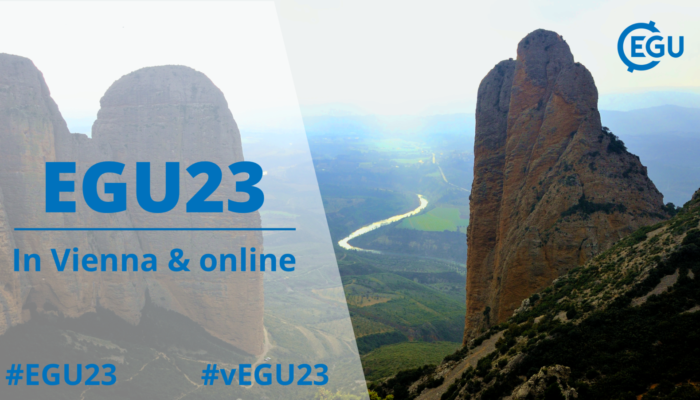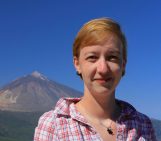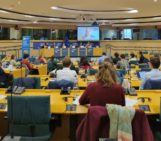
As the 2023 General Assembly materializes on the horizon, it’s a good idea to take stock of what sessions you want to attend in advance of attending the assembly proper. Whilst the scientific sessions provide some of the highlights, EGU23 has a rich programme to tempt you to go beyond – including inline and in-person sessions dedicated to early career scientists (ECS) networking, job and careers, science for policy, and the ever popular mentoring programme.
Early Career Scientist (ECS) Networking
EGU is dedicated to supporting early career scientists by providing opportunities to help them grow the network and meet their peers; Europe’s biggest geoscience conference is the perfect time to grow and activate your network.
The EGU Divisions provide networking opportunities dedicated to scientific fields, from icebreakers to picnics, with many events especially built to help ECS build their networks. For those looking for a more personal discussion, Divisions also provide opportunities to meet the ECS Representative of your Divisions, where you can share your ideas, provide feedback, or just get to know what EGU can do for its ECS members. Keep an eye out for Union-wide events, such as the First-time Attendee and Mentee networking event, or the ECS Networking Reception. You can also organise your won networking event, in-person or online, by using the Pop-up Networker which will be available in the coming weeks. If you’re interested in the above, keep an eye on the assembly programme and be sure to bookmark any events that catch your eye is it is updated in the run up to the assembly. Union-wide events like those described above, and the events dedicated to meeting Division presidents and ECS Representatives, will be available under the “Programme > Browse by session > Networking”. Division networking events and pop-up events will be available under “…> Pop-up networker” option, which will be available on the programme soon. More detailed information on networking events at EGU22 will be shared in another blog post, closer to the meeting.
Science for Policy
Policy sessions are perfect for participants seeking opportunities to utilize their expertise for greater impact, engage at the interfaces of science, and otherwise broaden their experience. From meeting experts working at the science-policy interface to weighing-in on discussion on just what position scientists should take when engaging with political species, EGU23 has plenty of opportunities to deepen your understanding of working with science beyond research.
The first stop for the curious should be the Science-of-Policy Help Desk: on every day from 10.45 to 12.30 at the EGU Booth, this relaxed drop-in session brings you together with science-policy experts for informal discussion and questions. If you want to dig a little deeper, be sure to sign up to meet a science for policy expert for the opportunity to put your questions to those working on the science-policy interface. For those looking to engage more with the policy-making sphere, this year’s short course How to create spaces for science-policy-citizen interaction and dialogue will help participants understand how to bridge the gap between scientists the policymakers and provide opportunity to talk with members of active science-policy groups and the European Parliament. Participants also have the opportunity to provide feedback on research funding, with Have your say: your experience in Horizon 2020 and views for Horizon Europe. Big topics also have their space at the assembly, including the Union Symposia : How can institutions assess impact beyond citations? Paths towards recognition and impact, and the Great Debates As climate change impacts accelerate, are we sleepwalking into the inferno…? and The Science activist: should science get Political? More detailed information on science-for-policy events will be shared in another blog post, closer to the meeting.
Participants fresh to the assembly can match with a mentor, who will be able to advise on how to best approach the assembly, network with others, and otherwise provide sage advice for navigating such a large conference. If you’re curious about the advantages of having a mentor, please check out what previous participants have said. For a deeper look into the mentoring programme check out EGU’s webinar and blog, which will help spell out what you should expect and how to engage. Applications for become a mentee close on 25 March. If you have experienced two or more EGU General Assemblies – in-person or virtually – you can apply to be a Mentor by 7 April!
Jobs and Careers
Participants looking for information and guidance on career development and the job hunt will find a rich deposit of sessions built to help you. With many organised by the ECS “Jobs and Careers” working group, the jobs and careers sessions aim to help participants at multiple stages of their careers.
The first stop for participants should be the career development Short Courses, available in the programme under “Programme > Browse by session > Short Courses > SC2 – Career development”. Here you’ll find courses dedicated to everything from applying for funding and regonizing transferrable skills, to discussions on careers beyond academia. Beyond sessions dedicated to helping you navigate your career, the Assembly also seeks to shed a light on the key topics and hurdles which influence career trajectories, such as the Union Symposia on Juggling parenting and caring responsibilities with a career in the geosciences: barriers and opportunities to increasing accessibility and inclusion . More detailed information on Jobs and Careers events at EGU22 will be shared in another blog post, closer to the meeting.
This is but a taste of what’s on offer; a blog can’t hope to encompass the diversity of sessions that will be at your fingertips come EGU23. Follow EGU’s social media or sign up to our newsletter for more detailed information on upcoming sessions in the coming weeks. And, finally, remember to register to attend!




